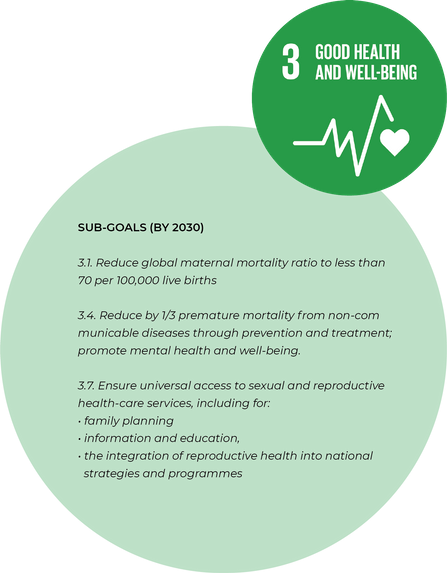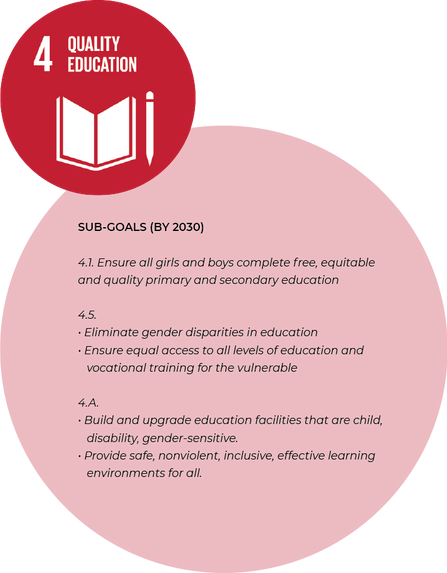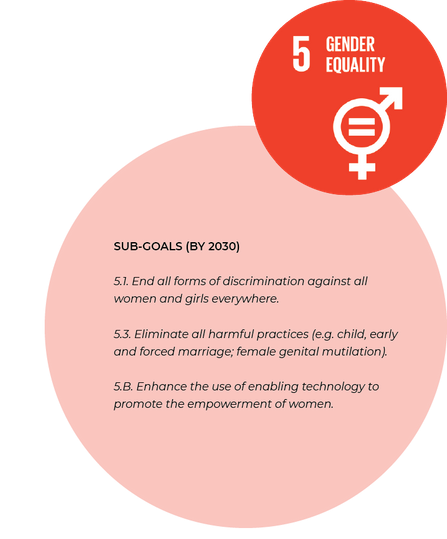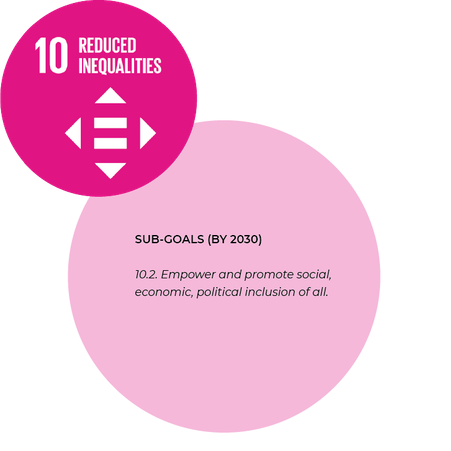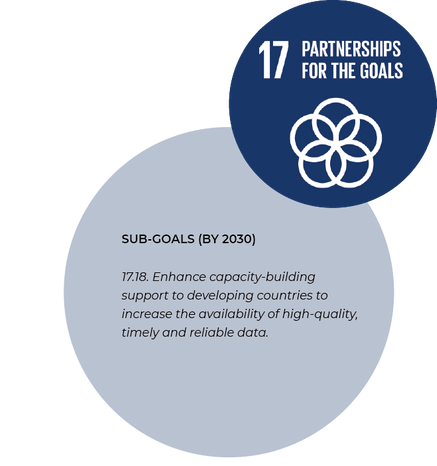The Sustainable
Development Goals
Good health and well-being
There is a huge need for education on taboo topics.
By using games, Lulu Lab seeks to address the knowledge gaps within Sexual and Reproductive Health and Rights (SRHR) and Mental Health and well-being.
Mental health issues such as stress, anxiety and depression are often neglected but can have devastating effects on quality of life. Meanwhile, a lack of knowledge about SRHR can result in a greater vulnerability to sexually transmitted infections, early pregnancy and dropping out of school.
By raising awareness and providing high-quality education, we want to empower our young users to make informed decisions about their health – and future.
Ensure inclusive and quality education for all and promote lifelong learning
Our games create a safe learning space where girls and boys can learn more about their own health, rights and bodies. We localize our games using human-centered design methods. This ensures that our educational content, audio and visuals matches our end-users and partner NGOs regardless of location and circumstances.
Our games are based on visuals and voice-overs, which means that everyone can play, regardless of reading or writing skills. Our games are easily translated into other languages, and our visuals easily adapted to other cultural settings, while our concept is easily scaled to cover even more educational topics.
Achieve gender equality and empower all women and girls
Lulu Lab works to enable girls to reach for the same opportunities as boys, by empowering girls and women to take charge of their own bodies.
We work to reduce school drop-out rates, to allow girls to finish their education and enable girls to pursue equal employment opportunities as boys. When women and girls have opportunities to participate, economies grow and nations prosper.
From our fieldwork in Kenya and Ethiopia, we were happily surprised to see how boys and girls are equally interested in learning more about how a baby grows during pregnancy, as well as how their own bodies will change over time.
Reduce inequality within and among countries
We believe that high-quality education must be accessible to everyone. Whether you live in an urban or rural area, whether you have access to the internet or not, we believe that providing offline scalable tech-solutions like Lulu Lab’s app can help reduce the growing inequality.
“Economic growth will not be sufficient to reduce poverty if it is not inclusive. Yet by some measures, inequality is growing, and there remain large disparities in people’s access to health and education services.” - UNFPA
One of the first challenges for Lulu Lab was to impact an offline school in rural Kenya. For this reason, the first version of our game was developed as a light, easily shared and easily installed game, that works both online and offline. This made it possible for us to install the game at the school’s donated offline computer lab.
Revitalize the global partnership for sustainable development
Lulu Lab’s work would not be possible without our partners! Our games are developed to enhance the already existing efforts of our partners in East and West Africa. Through strong partnerships with global NGO’s, local schools, municipalities and companies, we are able to interact and engage with our end-users where they are, to make sure that our game fits their needs and matches local capacities.
“Achieving the Sustainable Development Goals will require partnerships between governments, the private sector, and civil society. These partnerships must be built on a shared vision and understanding of the world. Goal 17 calls for increasing “the availability of high-quality, timely and reliable data.” - UNFPA
Through our games, we are able to equip our partners with reliable, digital and up-to-date information about user’s knowledge level and learning progress. We analyze and visualize the results for our partners, to help evaluate educational efforts, monitor interventions and report back to donors.

